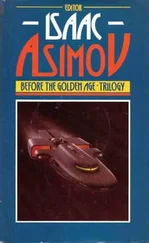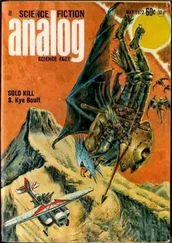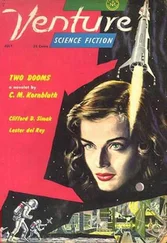Clifford Simak - Ring Around the Sun
Здесь есть возможность читать онлайн «Clifford Simak - Ring Around the Sun» весь текст электронной книги совершенно бесплатно (целиком полную версию без сокращений). В некоторых случаях можно слушать аудио, скачать через торрент в формате fb2 и присутствует краткое содержание. Жанр: Фантастика и фэнтези, на английском языке. Описание произведения, (предисловие) а так же отзывы посетителей доступны на портале библиотеки ЛибКат.
- Название:Ring Around the Sun
- Автор:
- Жанр:
- Год:неизвестен
- ISBN:нет данных
- Рейтинг книги:5 / 5. Голосов: 1
-
Избранное:Добавить в избранное
- Отзывы:
-
Ваша оценка:
- 100
- 1
- 2
- 3
- 4
- 5
Ring Around the Sun: краткое содержание, описание и аннотация
Предлагаем к чтению аннотацию, описание, краткое содержание или предисловие (зависит от того, что написал сам автор книги «Ring Around the Sun»). Если вы не нашли необходимую информацию о книге — напишите в комментариях, мы постараемся отыскать её.
Ring Around the Sun — читать онлайн бесплатно полную книгу (весь текст) целиком
Ниже представлен текст книги, разбитый по страницам. Система сохранения места последней прочитанной страницы, позволяет с удобством читать онлайн бесплатно книгу «Ring Around the Sun», без необходимости каждый раз заново искать на чём Вы остановились. Поставьте закладку, и сможете в любой момент перейти на страницу, на которой закончили чтение.
Интервал:
Закладка:
But what else? Surely there was more than that.
Intervention, Horton Flanders had said, rocking on the porch. Some sort of intervention that had helped the world advance and then had staved off, somehow or other, the bitter, terrible fruits of progress wrongly used.
Horton Flanders was the man who could tell him, Vickers knew. But where was Horton Flanders now?
"They're hard to catch," Crawford had said. "You ring doorbells and wait. You send in your name and wait. You track them down and wait. And they're never where you think they are, but somewhere else."
First, thought Vickers, plotting out his moves, I've got to get out of here and be hard to catch myself.
Second, find Ann and see that she is hidden out.
Third, find Horton Flanders and, if he doesn't want to talk, choke it out of him.
He picked up the top and went downstairs and turned in his key. The clerk got out his bill.
"I have a message for you," said the clerk, reaching back into the pigeonhole that held the key. "The gentleman who was up to see you just a while ago gave it to me just before he left."
He handed across an envelope and Vickers ripped it open, pulled out a folded sheet.
"A very funny kind of business," said the clerk. "He'd just been talking to you."
"Yes," said Vickers, "it is a very funny business."
The note read:
_Don't try to use that car of yours. If anything happens keep your mouth shut._
It _was_ a very funny kind of business.
CHAPTER TWENTY-SIX
HE drove toward the dawn. The road was deserted and the car ran like a fleeing thing, with no sound but the whistle of the tires as they hugged the pavement on the curves. Beside him, on the seat, the gaily painted top rolled back and forth to the motion of the car.
There were two things wrong, two immediate things:
He should have stopped at the Preston house.
He should not have used the car.
Both, of course, were foolish things, and he berated himself for thinking of them and pushed the accelerator down so that the whistle of the tires became a high, shrill scream as they took the curves.
He should have stopped at the Preston house and tried out the top. That, he told himself, was what he had planned to do, and he searched in his mind for the reasons that had made him plan it that way, but there were no reasons. For if the top worked, it would work anywhere. If the top worked, it worked and that was all there could be to it; it wouldn't matter where it worked, although deep inside him was a whisper that it did matter where it worked. For there was something special about the Preston house. It was a key point — it must be a key point in this business of mutants.
I couldn't take the time, be told himself. I couldn't mess around. There wasn't time to waste. The first job is to get back to New York and find Ann and get her out of sight.
For Ann, he told himself, must be the other mutant, although once again, as with the Preston house, he could not be entirely sure. There was no reason, no substantial proof, that Ann Carter was a mutant.
Reason, he thought. Reason and proof. And what are they? No more than the orderly logic on which Man had built his world. Could there be inside a man another sense, another yardstick by which one could live, setting aside the matter of reason and of proof as childish things which once had been good enough, but clumsy at the best? Could there be a way of knowing right from wrong, good and bad without the endless reasoning and the dull parade of proof? Intuition? That was female nonsense. Premonition? That was superstition.
And yet, were they really nonsense and superstition? For years researchers had concerned themselves with extrasensory perception, a sixth sense that Man might hold within himself, but had been unable to develop to its full capacity.
And if extrasensory perception were possible, then many other abilities were possible as well — the psycho-kinetic control of objects through the power of mind alone, the ability to look into the future, the recognition of time as something other than the movement of the hands upon a clock, the ability to know and manipulate unsuspected dimensional extensions of the space-time continuum.
Five senses, Vickers thought — the sense of smell, of sight, of hearing, of taste and touch. Those were the five that Man had known since time immemorial, but did it mean that it was all he had? Were there other senses waiting in his mind for development, as the opposable thumb had been developed, as the erect posture had been developed, as logical thinking had been developed throughout the years of Man's existence? Man had developed slowly. He had evolved from a tree-dwelling, fear-shivering thing into a club-carrying animal, into a fire-making animal. He had made, first of all, the simplest of tools, then more complex tools and finally the tools were so complex that they were machines.
All of this had been done as the result of developing intelligence and was it not possible that the development of intelligence, the development of the human senses was not finished yet? And if this were true, why not a sixth sense, or a seventh, or an eighth, or any number of additional senses, which, in their development, would come under the general heading of the natural evolution of the human race?
Was that, Vickers wondered, what had happened to the mutants, the sudden development of these additional and only half-suspected senses? Was not the mutation logical in itself — the thing that one might well expect?
He swirled through little villages still sleeping between the night and dawn and went past farmhouses lying strangely naked in the half light that ran on the eastern skyline.
_Don't try to use the car_, Crawford's note had read. And that was foolish, too, for there was no reason why he should not use the car. No reason other than Crawford's saying so. And who was Crawford? An enemy? Perhaps, although at times he didn't act like one. A man afraid of the defeat that he felt sure would come, more fearful perhaps of the commission of defeat than of defeat itself.
Reason once again.
No reason why he should not use the car. But he was faintly uneasy, using it.
No reason why he should have stopped at, the Preston house and still, in his heart, he knew he had somehow failed in not stopping there.
No reason to believe Ann Carter was a mutant, and yet he was sure she was.
He drove through the morning, with the fog rising from all the little streams he crossed, with the flush of sun against the eastern sky, with, finally, boys and dogs going after cows, and the first, well spaced traffic on the road.
He suddenly knew that he was hungry and a little sleepy, but he couldn't stop to sleep. He had to keep on going. When it became dangerous to drive, he would have to sleep, but not until then and not for very long.
But he'd have to stop someplace to eat. The next town he came to, if it were big enough, if it had an eating place that was open, he would stop and eat. Perhaps a cup or two of coffee would chase away the sleep.
CHAPTER TWENTY-SEVEN
THE town was large and there were eating places and people on the street, the six o'clock factory workers on the move to their seven o'clock jobs.
He picked out a place that didn't look too bad, that had less of the cockroach look about it than some of the other places, and slowed to a crawl, looking for a parking place. He found one, a block beyond the restaurant.
He parked and got out, locked the door. Standing on the sidewalk, he sniffed the morning. It still was fresh and cool, with the deceptive coolness of a summer morning.
He'd have breakfast, he told himself. Take his time eating it, give himself a little time in which to relax, let some of the road fatigue drop from his bones.
Читать дальшеИнтервал:
Закладка:
Похожие книги на «Ring Around the Sun»
Представляем Вашему вниманию похожие книги на «Ring Around the Sun» списком для выбора. Мы отобрали схожую по названию и смыслу литературу в надежде предоставить читателям больше вариантов отыскать новые, интересные, ещё непрочитанные произведения.
Обсуждение, отзывы о книге «Ring Around the Sun» и просто собственные мнения читателей. Оставьте ваши комментарии, напишите, что Вы думаете о произведении, его смысле или главных героях. Укажите что конкретно понравилось, а что нет, и почему Вы так считаете.









